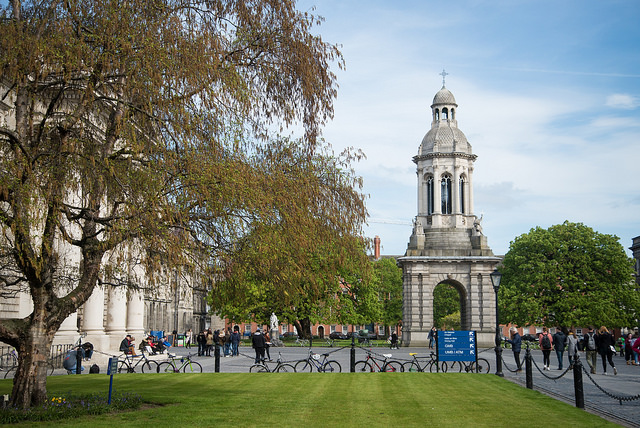Trinity’s academic staff will enjoy extra annual leave this year, after a Labour Court ruling ended a long dispute over the additional workload caused by changes to the College’s year structure.
The extra two days of annual leave have been awarded on a once-off basis, to compensate for disruptions to the working schedules of staff resulting from the ongoing implementation of the Trinity Education Project.
This year, the summer period for students and staff was curtailed, as College transitioned to the new schedule. The shorter summer became a key sticking point for academic staff in Trinity, triggering demands for compensation.
The Irish Federation of University Teachers (IFUT) argued that the Trinity Education Project had affected the time available for research work and holiday arrangements, and involved significant additional work in “bedding down” the new work arrangements.
After they were unable to reach an agreement with College, three of the trade unions who represent Trinity’s staff, IFUT, SIPTU and Unite, submitted a request in April to the Workplace Relations Commission, asking for mediation between them and Trinity.
IFUT proposed a €500 bonus benefit and five days of annual leave for all members as options for compensation. In a letter to Trinity’s HR department, seen by The University Times, the General Secretary of IFUT, Joan Donegan, said the union was seeking these options on an “once-off basis” and that members should be able to decide the option that they would prefer.
In its ruling, the Labour Court noted that the College “did not dispute that there was full co-operation with implementation of the new structure and that there were some teething problems to be resolved”.
SIPTU accused Trinity of treating staff with “disdain”, amid the row between College and three trade unions over the earlier start to term in September.
In a motion voted on by the union, College was accused of failing to engage with staff concerns about the Trinity Education Project, notably the earlier start to term in September. The motion also criticised “diktats” from the heads of Trinity’s departments, as staff were asked to adapt to “changed work processes, calendar changes and timetabling of opening hours” that come with the earlier start to term.
The changes introduced by Trinity amount to an arbitrary change in the terms and conditions of staff, IFUT said in a press statement. The Labour Court recognised the additional workload for staff.
Academic staff in Trinity do not have a designated number of annual-leave days, but instead must request time off from their head of school. Speaking to The University Times at the time, the Chair of IFUT in Trinity, Dr John Walsh, said that both options mean that College “management can’t hide behind the government, which happens from time to time”.
“Obviously University Council and College Board have made the decision the interim academic year will go ahead but there is no agreement between the unions and college that staff will co-operate with it”, Walsh added. The changes to the summer period amounts “to a change in the terms and conditions of staff” contracts but “we want this resolved well in advance of repeat exams, that’s why we referred it to the Workplace Relations Commission”, Walsh said.
The Trinity Education Project is a radical reimagining of every aspect of the College’s undergraduate curriculum. Under the project, the structure of the academic year has changed drastically, with the introduction of Christmas exams and a two-week earlier start to the year. The year will end several weeks earlier than before.







